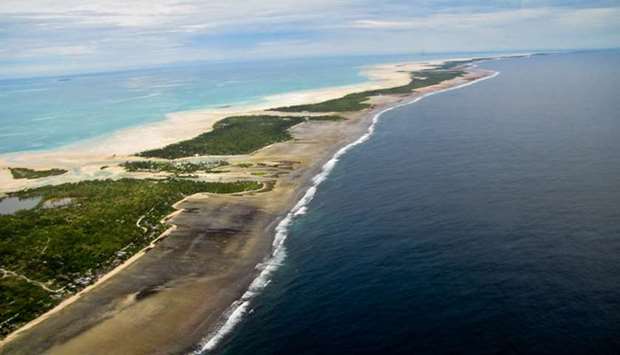People forced to flee their home countries because climate change endangers their life have a right to asylum, a UN body announced Tuesday as it released a ruling in the case of a man who tried to move to New Zealand because his home was sinking.
The case was filed by Ioane Teitiota, a native of the island nation of Kiribati, who had fled to New Zealand and argued that he should have the right to remain there because climate change is making life impossible on Kiribati, which is slowly being submerged by rising oceans.
A New Zealand court found in 2015 that Teitiota faced no direct danger if he returned home and disputed his arguments that he could find neither land to cultivate nor water to drink on Kiribati.
The UN body intervened when Teitiota appealed to ask whether New Zealand had properly upheld its obligations under UN treaties.
Although the UN Human Rights Commission ruled that New Zealand had acted properly, it clarified that there are situations in which a person would be able to claim asylum because of climate change-linked dangers.
‘Given that the risk of an entire country becoming submerged under water is such an extreme risk, the conditions of life in such a country may become incompatible with the right to life with dignity before the risk is realised,’ it wrote.
It was the first time the body had considered the question of asylum rights as linked to climate change.
‘This ruling sets forth new standards that could facilitate the success of future climate change-related asylum claims,’ said Yuval Shany, an expert with the committee.



